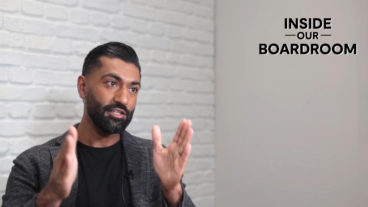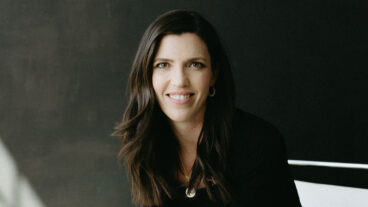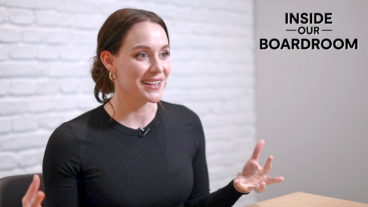For almost 40 years, Dr. John Izzo has been at the forefront of key trends reshaping the way we work. He was a pioneer in employee engagement and social responsibility with his book Awakening Corporate Soul (1994), a trailblazer on shifting generational values in the workplace with Values Shift: The New Work Ethic and What It Means for Your Business (2000), and a leader in The Purpose Revolution (2018).
Today, as a self-professed “modern elder”, which he describes as someone who is wise and curious — they bring years of wisdom but they’re curiosity keeps them in touch with what’s happening now — John continues to share hard-hitting practical insights, drawn from the latest research, to help leaders prepare for whatever the future of work may bring.
John recently joined us “Inside Our Boardroom”, where we asked this modern elder to share insight into the biggest workplace change he’s observed over the last few decades, what trends or shifts he foresees having the biggest impact moving forward, and what kind of leaders today’s modern workplace needs to thrive now and into the future.
Answers have been edited for length and clarity.
A Changing Workplace
Speakers Spotlight: What is the most drastic shift you’ve seen in the corporate landscape?
Dr. John Izzo: One of the advantages of having been doing this kind of work for so long, almost 40 years now, is you really see what’s changed and what hasn’t.
What hasn’t changed is the basics of good leadership. People want to work for someone they trust, who’s honest, straightforward, and instills in them a sense of stability. They want someone who inspires them towards a vision of the work where they’re doing something worthy and they want to feel valued, appreciated, and involved, so they can bring their whole self to work.
So, the leadership basics haven’t changed. What made you a great leader 40 years ago is what makes you a great leader today. But the environment in which we lead has changed radically.
We used to talk in the 1990s about adapting to change as if change would happen and then you’d have a long period of stability. Then we talked about white water change, where change was constant. And now, you actually have to be the disruptor before you get disrupted. So, as a leader, change is now your job. You don’t navigate or manage change, you create it. That’s a huge difference.
One other thing that’s changed is the workforce. Recruiters say the number one most searched term is hybrid or virtual. Many people won’t even apply for a job if it doesn’t have those two words in the description. The bigger trend behind this is people wanting to work on their terms. That’s a big shift for employers because for years it was their terms.
So, those two things — the pace of change and the need to disrupt alongside workers who want things on their terms — are the biggest shifts.
Watch John explore these two shifts in more depth in the video below:
AI and the Future of Work
SpSp: How do you see meaningful and purpose-driven work evolving over the next decade, especially with AI and other new technologies?
JI: When it comes to AI, it’s a double-edged sword for the workplace. Before, automation generally removed routine work that wasn’t very interesting, allowing people to focus more on higher, cognitive tasks that were more interesting. AI, of course, is automation on steroids because it can do something previous forms of automation couldn’t do — synthesize and create information.
That changes the game radically. AI is going to help us do our work more efficiently and in a multitude of ways, disrupting many jobs, even some we never thought possible like lawyers and accountants; jobs we used to think only a human could do.
But the question is, what does it mean for the workplace? First, it’s probably not going to happen as fast as people think it is. But, either way, leaders should be thinking about the main assets that their people bring — creativity and innovation. While AI can synthesize information, it’s not very good at innovating. So, humans are not going to become unnecessary around AI because the highest level of thinking, creativity, and innovation is still going to come from us.
Future-Ready Leadership
SpSp: What does it mean to be a “responsible” leader and are we doing a good job?
JI: When I think about the core of leadership, I first tell leaders that they’re dinner table conversation. I guarantee that the people who work for you, talk about you at dinner with their family and friends. That’s how important you are. The question is, what are they saying about you?
In my mind, the best leaders have one characteristic that is paramount among all others — they see themselves as guardians. Guardians of the business, its brand, and its reputation, not only in this moment, but for the years ahead. They’re a guardian of their clients and their customer’s experience whose lives and businesses are impacted by what their company does and the decisions they make. They’re guardians of their employees who are literally giving their life force, their time — the one thing we give and never get back — and, of course, their shareholders.
So, the greatest leaders know that they are dinner table conversation and regard themselves as guardians. With that in mind, one of my favourite leaders that I met many years ago was a man named Jimmy Blanchard, who for 40 years, ran Cenovus Bank in the US. During his tenure, the bank grew by 10,000%, won market share from bigger banks wherever they were located, and were named by Fortune Magazine as one of the best companies to work for in America.
There are three things I saw in Jimmy Blanchard that I’ll never forget. First, what he called the power of love — it didn’t matter if you were a secretary, a janitor, or the biggest shareholder of the company, he made you feel loved when he walked into a room. The second thing is, he had a set of values that he never steered away from. They had a simple mantra at Cenovus — do the right thing. When leaders model doing the right thing and lead with love, people want to follow them. The third thing Jimmy had was high expectations. He had something he called the 100-0: 100% responsibility, zero excuses. He didn’t tolerate mediocrity because he said that we owe our customers and each other the very best.
So, through that trifecta, you can see what great leaders do. They have love for their customers and their people, they do the right thing and care about the outcomes, and they have high expectations because people ultimately want to be on a winning team. You have those three things, you will be a great leader.
John dives deeper into the characteristics of responsible leadership in the video below and in his keynote, “100% Responsibility, 0% Excuses: Creating a Culture of Responsibility”.
SpSp: What strategies exist to build a “future ready” organization?
JI: People often hire futurists to tell them what may be coming. The problem is that the information shared is often so high level that we can’t do anything with it in the moment or it turns out to be wrong because they focus on the future that’s coming rather than the possible futures that are coming.
So, to be future proof as leaders is to learn how to look at multiple scenarios that may happen in the future. There’s never one future. There are always multiple possible futures. And once we can identify the possible futures, we can ask ourselves, what’s the future that we most desire and the one we’re most afraid of? Then we can ask the question, what can we do now that will make the most desirable future happen? And how can we be most ready for the less desirable future when it arrives? That’s future proof thinking.
John helps leaders get “future proof” in his keynote, “Future Proof Leadership: Why We Often Miss What’s Coming and How to Be Ready”. Learn more about what being “future proof” looks like in the video below:
Leading a Multigenerational Workforce
SpSp: Are we prepared for an aging workforce? What should companies be doing better?
JI: I was one of the first people to write about generational changes. In 2000, I wrote a book called Values Shift: The New Work Ethic and What it Means for Business. I made the important point that some of what we thought were generational shifts were actually just shifts in the workforce, period. They were simply in larger measure among younger workers.
I still think that’s absolutely true today. While we’re soon to have four generations in the workplace, you don’t hear a lot about managing intergenerational conflict, and I think there’s a reason for that. Throughout society, our values have shifted around work. We may think it’s younger people who want flexibility or work-from-home options, but boomers want it just as much. Young people want more meaning at work, well, guess what, so do older workers. Young people don’t like to be micromanaged, well I haven’t met too many baby boomers who like to be micromanaged either.
So, in my book I suggested, which I think 24 years later still stands, that what was happening is that the values of the workforce in general were changing.
Among aging workers, one of the things I see in so many places that have written off older workers, is a loss of knowledge. Many companies that I work with are dealing with an incredible loss of experience in a 5-10-year period. They’re losing thousands of years of experience, and in more technical jobs, that is literal loss of knowledge and wisdom. We have a big opportunity to win those older workers back by offering more part-time or flexible work.
John explores the intricacies of leading multigenerational teams in the video below and what leaders can do to ensure they reap the benefits of an aging workforce:
Hire Dr. John Izzo to Speak at Your Next Event
Renowned for his hard-hitting practical content, inspirational storytelling, and the lasting impact he has on organizations, Dr. John Izzo has spoken to over one million people, taught at three major universities, and advised over 500 top companies. Past clients include Ford, 3M, Manulife, McDonald’s, SAPA, RBC, Lockheed Martin, Qantas Airlines, Humana, Microsoft, and the Mayo Clinic.
John is also the bestselling author of nine books, including the international bestsellers Awakening Corporate Soul, Values Shift, The Five Secrets You Must Discover Before You Die, The Five Thieves of Happiness, The Purpose Revolution, and Stepping Up.
If you’re looking to inspire real, actionable change within your organization and empower your leaders and teams to better navigate today’s rapidly changing business landscape, contact us to book John as your next conference speaker and take the first step towards transforming your organization.




